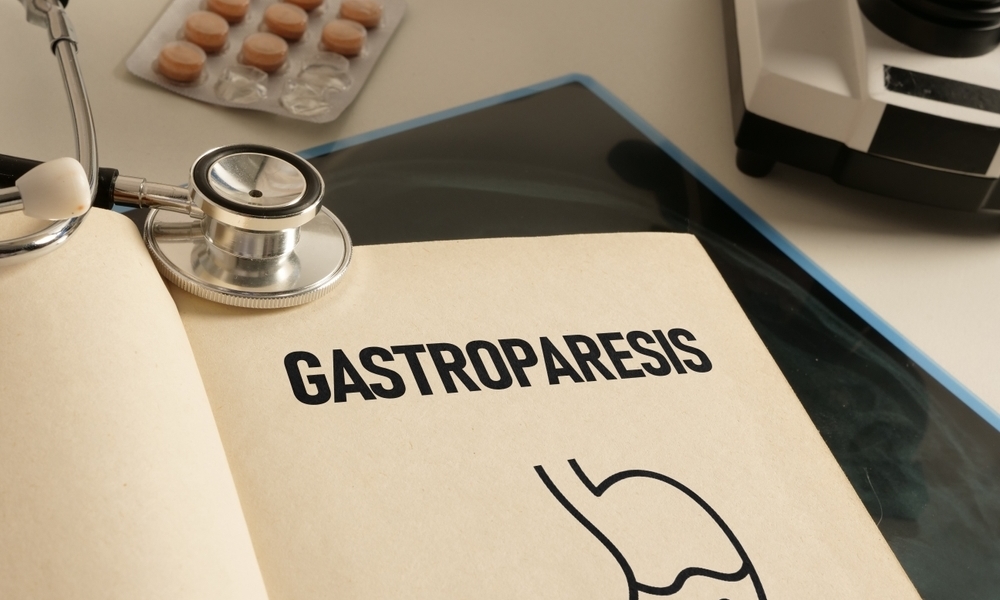
Gastroparesis Awareness Month: Understanding a Delayed Digestive Disorder
Every August, Gastroparesis Awareness Month is observed in the United States, as designated by the U.S. Department of Health and Human Services. This dedicated month aims to shed light on gastroparesis, a condition that affects the normal movement of the stomach muscles, causing delayed digestion. It serves as an opportunity to educate the public and foster understanding of the challenges faced by those living with this chronic disorder.
Gastroparesis is a chronic gastrointestinal (GI) disorder characterized by the stomach muscles not contracting properly, resulting in delayed gastric emptying. This means that food moves more slowly from the stomach to the small intestine, interfering with normal digestion. The condition can result in symptoms such as nausea, vomiting, bloating, and feeling full after eating only a small amount of food. Gastroparesis can significantly impact quality of life and often requires long-term management to address symptoms and nutritional needs.
Signs and Symptoms: How Gastroparesis Affects the Body
Gastroparesis presents with a range of symptoms that can significantly impact daily life. Common symptoms include:
- Nausea and vomiting
- Bloating and early satiety (feeling full quickly)
- Abdominal pain and poor appetite
These symptoms vary in severity from person to person and may fluctuate over time, making management of the condition challenging.
Complications and the Need for Long-term Management
These symptoms can lead to malnutrition, dehydration, and weight loss, all of which pose significant health risks if left untreated. The inability to properly digest and absorb nutrients may result in deficiencies that affect overall well-being and quality of life.
Additionally, dehydration from persistent vomiting can disrupt electrolyte balance, potentially causing further complications. Managing gastroparesis often requires a combination of dietary changes, medications, and specialized medical interventions to alleviate symptoms and prevent long-term health issues.
What Causes Gastroparesis? Understanding the Risk Factors
One of the most common causes is diabetes, particularly when blood sugar levels are poorly controlled. Chronic high blood sugar can damage the vagus nerve, which plays a key role in regulating stomach muscles and digestion.
Another potential cause is post-surgical nerve damage, which may occur after abdominal or esophageal surgeries, disrupting the standard signals necessary for stomach emptying.
However, in many cases, the origin of gastroparesis remains idiopathic, meaning its cause is unknown despite thorough medical investigation. Identifying the specific reason, when possible, is a pivotal step in tailoring an effective treatment plan.
Gastroparesis can affect both adults and children, making it a condition with a broad demographic impact. While symptoms may vary in severity, their nonspecific nature often leads to underdiagnosis, as it can be mistaken for other gastrointestinal disorders. Awareness of the condition and thorough medical evaluation are crucial for identifying it early, ensuring proper management, and improving the quality of life for those affected.
Living with Gastroparesis: Support, Diet, and Coping
Managing gastroparesis effectively requires a multidisciplinary approach, with gastrointestinal (GI) specialists and dietitians playing a crucial role. GI specialists can help identify the severity of the condition and recommend medical treatments or procedures tailored to the patient's specific needs. Meanwhile, dietitians bring expertise in creating personalized dietary plans that address nutritional deficiencies while minimizing symptoms. This collaborative effort ensures a comprehensive treatment plan that not only improves quality of life but also prevents potential complications such as malnutrition or severe dehydration. Regular follow-ups with both professionals are vital for monitoring progress and adjusting treatments as needed.
Support from organizations like G-PACT (Gastroparesis Patient Association for Cures and Treatments) plays a crucial role in empowering individuals living with gastrointestinal conditions. These organizations provide valuable resources to help patients understand their diagnoses, manage symptoms, and advocate for improved medical care. Through patient education, community forums, and awareness campaigns, G-PACT fosters a sense of belonging and support. By connecting patients with others who share similar experiences, they help alleviate the isolation often felt by those managing chronic illnesses, encouraging a more positive and informed approach to daily challenges.
Spreading Awareness and Supporting the Cause
One of the most impactful ways to promote public awareness is through education, social media campaigns, and sharing patient stories. By leveraging platforms such as Facebook, Twitter, and Instagram, G-PACT reaches a broader audience, spreading vital information about gastroparesis and chronic intestinal pseudo-obstruction. Educational posts, infographics, and live webinars play a crucial role in dispelling myths, addressing misconceptions, and providing accurate medical insights. Additionally, patient stories serve as powerful testimonials that highlight the human side of these conditions, fostering empathy and understanding. These personal narratives not only inspire hope but also unite individuals in advocating for advancements in research, treatment options, and access to care. Such initiatives create a ripple effect, encouraging communities to rally behind those impacted by digestive motility disorders. If you have any questions about Gastroparesis, contact our experts at NCDHP.